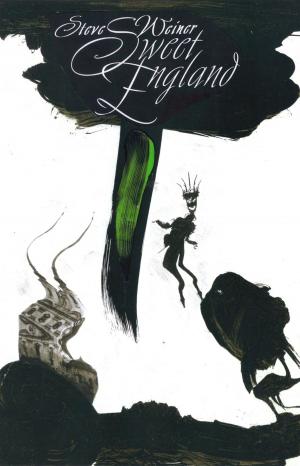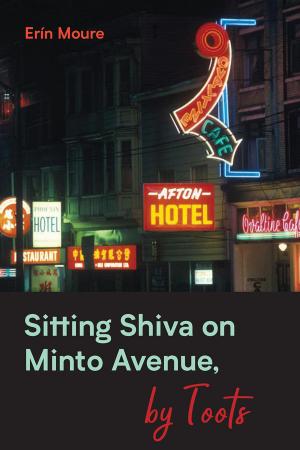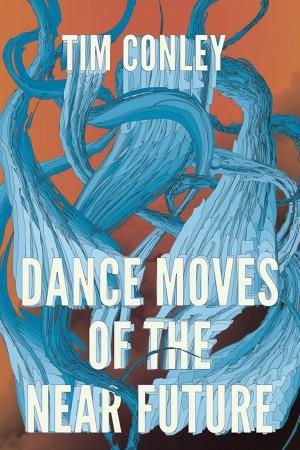| Author: | George Bowering | ISBN: | 9781554200795 |
| Publisher: | New Star Books | Publication: | January 8, 2014 |
| Imprint: | Language: | English |
| Author: | George Bowering |
| ISBN: | 9781554200795 |
| Publisher: | New Star Books |
| Publication: | January 8, 2014 |
| Imprint: | |
| Language: | English |
First published in 1980 to high acclaim, Burning Water won a Governor General's Award for fiction that year. A rollicking chronicle of Captain Vancouver's search for the Northwest Passage, the book has over its career been mentioned in recommended lists of postmodern fiction, BC historical fiction, gay fiction and humour. This gives you some idea of the scope of what has been called Bowering's best novel.
"I have sometimes said, kidding but not really kidding," writes its author, "that I attended to the spirit of the west coast, and told the story about the rivals for our land as an instance in which the commanders decided to make love, not war."
As an accurate account of Vancouver's exploration of our coastline, Burning Water conveys the exact length–99 feet–of the explorer's ship, and contains citations from his journals. As a work of fanciful fiction, things usually thought to be impossible transpire, without compromising the realism of the text. Bowering recalls that his free hand with history particularly incensed the founder of the National Archives, who had written a biography of George Vancouver and complained in print that Burning Water differed too much from other, similar books in its field.
EXCERPT:
Chapter 1
WHATEVER IT WAS, the vision, came out of the far fog and sailed right into the sunny weather of the inlet. It was June 10, 1792.
It could have been June 20 for all the two men who watched from the shore could care. The shore was rocks and scrubby trees right to the high tide water line. The two men were Indians, and they knew enough to blend in with the rocks and trees, for the time being at least.
“It is the first time in my life that I have seen a vision,” said the first Indian.
“A vision?” said the second Indian.
“The old folks told me about them. They said you went alone to the woods with no food for a week or two, and you would see visions. Well, maybe I have not been eating much lately.”
The second Indian, who was about ten years older, a world-weary man with scars here and there, sighed.
“You have had no particular problem with eating,” he said. “You eat more than I do, though I carry more than you do.”
“I am still growing. Surely you would not deny me the nourishment I require to take my place as a full man of the tribe?”
These young ones could be pretty tiresome. Full man of the tribe. Talk talk talk. The second Indian looked over at his companion, who was now leaning back on a bare patch of striped granite, idly picking at his navel. And now he is seeing visions.
“I will make certain that I give you half of my fish tonight, before you start hinting for it this time. Meanwhile I might as well tell you about this vision you are seeing.”
The first Indian looked up from his belly as if he had forgotten about the vision. He held his hand up, palm downward, sheltering his eyes as he gazed out over the silver water, where another vision or whatever had joined the first. When it got close enough it would be seen to be larger than the first one. The first Indian put his fishing gear down on a flat rock and climbed a little closer down to the water. Much farther and he would fall in and the second Indian would have to rescue him from drowning for the second time in a week. I am an artist, he had said the first time, what do I know about swimming? To which his lifeguard had replied: or about fishing?
“Okay, what do you see?”
“I see two immense and frighteningly beautiful birds upon the water.”
“Birds?”
“Giant birds. They can only be spirits. Their huge shining wings are folded and at rest. I have heard many of the stories about bird visions, the one who cracks your head open and eats your brains ...”
“Hoxhok.”
“And others who alight from the mountains and the skies and take away unsuspecting children and people with bad personalities. Also the one with the hopelessly long name who eats eyeballs. But never anything quite like this.”
“Maybe, then, it is a vision that rightly belongs to another people entirely,” suggested the second Indian.
“An interesting thought, but the fact is that it has been revealed, in the present case, to us.”
“Then you do think there is something to facts?”
“Of course. But facts can only lead us to visions. Some of us, at least, were born to see visions.”
“That is perhaps why you have so much difficulty getting a fish to leave the sea and come home with you. He is a fact whether he is hidden under the surface, or changing colours on the rocks. To make this fact your fact, you need skill and a well-made hook.”
“But a vision is not a fish, my old ironic friend.”
“I was perhaps making that very point in its opposite order,” said he.
“But look yonder, how the late afternoon sun has picked out the true aspect of those wings at rest. Now they are revealed to be gold, and we are two lucky men to have seen this. We will camp here tonight, and while the visions remain I will watch them ...”
“You’ll be asleep a minute after it gets dark.”
“I will watch them until they have flown back into their sky or heaven or homeland up in the air. Then I will open my mind to the Great Spirit, and create a song, and the song will reveal the meaning of the vision, and I will take it back with me to the tribe, where I will be accepted and welcomed as ...”
“A full man of the tribe.”
HE STOPPED WRITING and went out for a while in the Triestino sunlight. When he came back this all seemed crazy.
“YES, A FULL MAN of the tribe. You should not sneer. That is perhaps more than you think I am, but it is also perhaps more than you feel need of for yourself.”
The second Indian spat in the direction of those two giant swans or whatever they were.
“You see those visions of yours?”
“Yes, I see them. Oh, I get it. Very clever. But I do see them and so do you, so that takes care of your precious facts, too.”
“Not quite.” Now he was going to get the brash little squirrel. Little prick. “Those are boats.”
“Haw haw haw!”
“Two large dugouts from another people, as I said.”
“Oh sure, dugouts with wings.”
“Those wings are made of thick cloth. They catch the wind as we are supposed to catch fish in our nets, and travel far out to sea.”
“You are only trying to discredit me.”
“No, I am discrediting only your fancy. Your fancy would have the fish leap from the water into your carrying bag. But the imagination, now that is another matter. Your imagination tells you where to drop your hooks.”
The first Indian looked from his companion to the contraptions and back again. He turned full around, and looked at the second Indian as suddenly as he could, fishing for a truth perhaps swimming in the shadow of a rock.
“You know, I do not want to believe you, but I find it hard not to. I have been bred to believe you.”
“Though you were born to see visions.”
The artist turned from his older friend with hurt pride and feigned derision. His friend put his hand on his deerskin-covered shoulder and turned him around.
“They are boats. Your fancy cannot dissemble that much. You must allow your senses to play for your imagination. Now, look at the highest point at the rear of the larger dugout. What do you see there?”
The first Indian looked with his very good eyes.
“It looks like a man.”
“Yes?”
“In outlandish clothes. Like no clothes ever seen on this sea. He must be a god, he ...”
The second Indian squeezed tight on his shoulder.
“That is your fancy speaking. That can be very dangerous for people such as us. You must never believe that you have seen a god when you have seen a man on a large boat.”
“You have perhaps seen them before?”
“I have.”
“Up close?”
“Closer. The vision is made of wood. Hard, smooth, shiny, painted wood. The figures wear peculiar clothes, all right, and some have hair on their faces. Can you imagine a god with hair on his face?”
“Did you hear them speak?”
“No, my imagination did not take me that close. A friend who did hear one speak a year ago said these people come from far in the south, and they call themselves Narvaez.”
IN TRIESTE, IT WAS RAINING most of the time, and he would bump other umbrellas with his own on his way down to the piazza, where he would look out at the fog that had drifted in across the northern end of the Adriatic.
It was his idea, crazed in all likelihood, that if he was going to write a book about that other coast as it was two hundred years ago, he would be advised to move away in space too.
It was a neat-sounding idea, but it didn’t hold any water at all. In fact it was probably informed by the malaise that had been responsible for a decade of waiting around for a shape to appear out of the fog.
And while there were certainly some people who cared very much whether George Vancouver came back over the ocean with his maps, there wasn’t anyone who cared whether he ever showed up in Vancouver with a novel written there or elsewhere.
He had thought he would write the book nine thousand miles east because there the weather would be too poor to promote lying on a beach, the city so dull that one day’s walk would take care of the sightseeing, and he didn’t know a soul (or body) within a thousand miles, and knew only a close relative of the language. He would be ineluctably driven to the manuscript because there would be no telephone to summon his voice for a lecture in a prison, no mail to petition his name for a young writer’s attempt to secure a grant to go and write a novel somewhere else, no pub to call for his anticipation Thursday, his body Friday night, and his aching head all day Saturday. No distractions, he said, meaning partly that she couldn’t get him to change a light bulb or listen to a dream while he should be, as he habitually put it to himself, sitting down in that chair in that tax write-off study, producing.
First published in 1980 to high acclaim, Burning Water won a Governor General's Award for fiction that year. A rollicking chronicle of Captain Vancouver's search for the Northwest Passage, the book has over its career been mentioned in recommended lists of postmodern fiction, BC historical fiction, gay fiction and humour. This gives you some idea of the scope of what has been called Bowering's best novel.
"I have sometimes said, kidding but not really kidding," writes its author, "that I attended to the spirit of the west coast, and told the story about the rivals for our land as an instance in which the commanders decided to make love, not war."
As an accurate account of Vancouver's exploration of our coastline, Burning Water conveys the exact length–99 feet–of the explorer's ship, and contains citations from his journals. As a work of fanciful fiction, things usually thought to be impossible transpire, without compromising the realism of the text. Bowering recalls that his free hand with history particularly incensed the founder of the National Archives, who had written a biography of George Vancouver and complained in print that Burning Water differed too much from other, similar books in its field.
EXCERPT:
Chapter 1
WHATEVER IT WAS, the vision, came out of the far fog and sailed right into the sunny weather of the inlet. It was June 10, 1792.
It could have been June 20 for all the two men who watched from the shore could care. The shore was rocks and scrubby trees right to the high tide water line. The two men were Indians, and they knew enough to blend in with the rocks and trees, for the time being at least.
“It is the first time in my life that I have seen a vision,” said the first Indian.
“A vision?” said the second Indian.
“The old folks told me about them. They said you went alone to the woods with no food for a week or two, and you would see visions. Well, maybe I have not been eating much lately.”
The second Indian, who was about ten years older, a world-weary man with scars here and there, sighed.
“You have had no particular problem with eating,” he said. “You eat more than I do, though I carry more than you do.”
“I am still growing. Surely you would not deny me the nourishment I require to take my place as a full man of the tribe?”
These young ones could be pretty tiresome. Full man of the tribe. Talk talk talk. The second Indian looked over at his companion, who was now leaning back on a bare patch of striped granite, idly picking at his navel. And now he is seeing visions.
“I will make certain that I give you half of my fish tonight, before you start hinting for it this time. Meanwhile I might as well tell you about this vision you are seeing.”
The first Indian looked up from his belly as if he had forgotten about the vision. He held his hand up, palm downward, sheltering his eyes as he gazed out over the silver water, where another vision or whatever had joined the first. When it got close enough it would be seen to be larger than the first one. The first Indian put his fishing gear down on a flat rock and climbed a little closer down to the water. Much farther and he would fall in and the second Indian would have to rescue him from drowning for the second time in a week. I am an artist, he had said the first time, what do I know about swimming? To which his lifeguard had replied: or about fishing?
“Okay, what do you see?”
“I see two immense and frighteningly beautiful birds upon the water.”
“Birds?”
“Giant birds. They can only be spirits. Their huge shining wings are folded and at rest. I have heard many of the stories about bird visions, the one who cracks your head open and eats your brains ...”
“Hoxhok.”
“And others who alight from the mountains and the skies and take away unsuspecting children and people with bad personalities. Also the one with the hopelessly long name who eats eyeballs. But never anything quite like this.”
“Maybe, then, it is a vision that rightly belongs to another people entirely,” suggested the second Indian.
“An interesting thought, but the fact is that it has been revealed, in the present case, to us.”
“Then you do think there is something to facts?”
“Of course. But facts can only lead us to visions. Some of us, at least, were born to see visions.”
“That is perhaps why you have so much difficulty getting a fish to leave the sea and come home with you. He is a fact whether he is hidden under the surface, or changing colours on the rocks. To make this fact your fact, you need skill and a well-made hook.”
“But a vision is not a fish, my old ironic friend.”
“I was perhaps making that very point in its opposite order,” said he.
“But look yonder, how the late afternoon sun has picked out the true aspect of those wings at rest. Now they are revealed to be gold, and we are two lucky men to have seen this. We will camp here tonight, and while the visions remain I will watch them ...”
“You’ll be asleep a minute after it gets dark.”
“I will watch them until they have flown back into their sky or heaven or homeland up in the air. Then I will open my mind to the Great Spirit, and create a song, and the song will reveal the meaning of the vision, and I will take it back with me to the tribe, where I will be accepted and welcomed as ...”
“A full man of the tribe.”
HE STOPPED WRITING and went out for a while in the Triestino sunlight. When he came back this all seemed crazy.
“YES, A FULL MAN of the tribe. You should not sneer. That is perhaps more than you think I am, but it is also perhaps more than you feel need of for yourself.”
The second Indian spat in the direction of those two giant swans or whatever they were.
“You see those visions of yours?”
“Yes, I see them. Oh, I get it. Very clever. But I do see them and so do you, so that takes care of your precious facts, too.”
“Not quite.” Now he was going to get the brash little squirrel. Little prick. “Those are boats.”
“Haw haw haw!”
“Two large dugouts from another people, as I said.”
“Oh sure, dugouts with wings.”
“Those wings are made of thick cloth. They catch the wind as we are supposed to catch fish in our nets, and travel far out to sea.”
“You are only trying to discredit me.”
“No, I am discrediting only your fancy. Your fancy would have the fish leap from the water into your carrying bag. But the imagination, now that is another matter. Your imagination tells you where to drop your hooks.”
The first Indian looked from his companion to the contraptions and back again. He turned full around, and looked at the second Indian as suddenly as he could, fishing for a truth perhaps swimming in the shadow of a rock.
“You know, I do not want to believe you, but I find it hard not to. I have been bred to believe you.”
“Though you were born to see visions.”
The artist turned from his older friend with hurt pride and feigned derision. His friend put his hand on his deerskin-covered shoulder and turned him around.
“They are boats. Your fancy cannot dissemble that much. You must allow your senses to play for your imagination. Now, look at the highest point at the rear of the larger dugout. What do you see there?”
The first Indian looked with his very good eyes.
“It looks like a man.”
“Yes?”
“In outlandish clothes. Like no clothes ever seen on this sea. He must be a god, he ...”
The second Indian squeezed tight on his shoulder.
“That is your fancy speaking. That can be very dangerous for people such as us. You must never believe that you have seen a god when you have seen a man on a large boat.”
“You have perhaps seen them before?”
“I have.”
“Up close?”
“Closer. The vision is made of wood. Hard, smooth, shiny, painted wood. The figures wear peculiar clothes, all right, and some have hair on their faces. Can you imagine a god with hair on his face?”
“Did you hear them speak?”
“No, my imagination did not take me that close. A friend who did hear one speak a year ago said these people come from far in the south, and they call themselves Narvaez.”
IN TRIESTE, IT WAS RAINING most of the time, and he would bump other umbrellas with his own on his way down to the piazza, where he would look out at the fog that had drifted in across the northern end of the Adriatic.
It was his idea, crazed in all likelihood, that if he was going to write a book about that other coast as it was two hundred years ago, he would be advised to move away in space too.
It was a neat-sounding idea, but it didn’t hold any water at all. In fact it was probably informed by the malaise that had been responsible for a decade of waiting around for a shape to appear out of the fog.
And while there were certainly some people who cared very much whether George Vancouver came back over the ocean with his maps, there wasn’t anyone who cared whether he ever showed up in Vancouver with a novel written there or elsewhere.
He had thought he would write the book nine thousand miles east because there the weather would be too poor to promote lying on a beach, the city so dull that one day’s walk would take care of the sightseeing, and he didn’t know a soul (or body) within a thousand miles, and knew only a close relative of the language. He would be ineluctably driven to the manuscript because there would be no telephone to summon his voice for a lecture in a prison, no mail to petition his name for a young writer’s attempt to secure a grant to go and write a novel somewhere else, no pub to call for his anticipation Thursday, his body Friday night, and his aching head all day Saturday. No distractions, he said, meaning partly that she couldn’t get him to change a light bulb or listen to a dream while he should be, as he habitually put it to himself, sitting down in that chair in that tax write-off study, producing.















